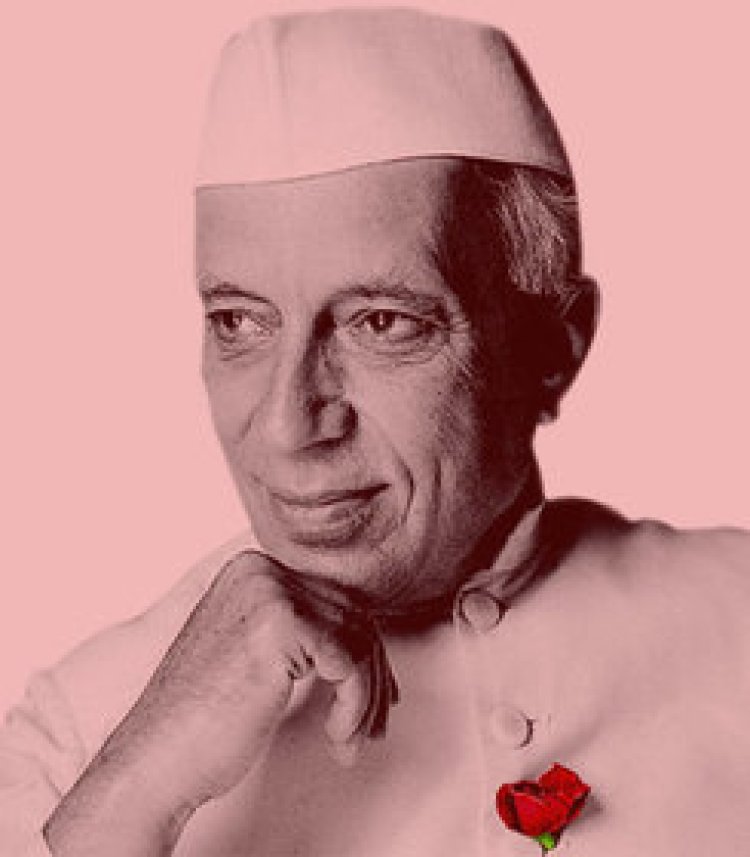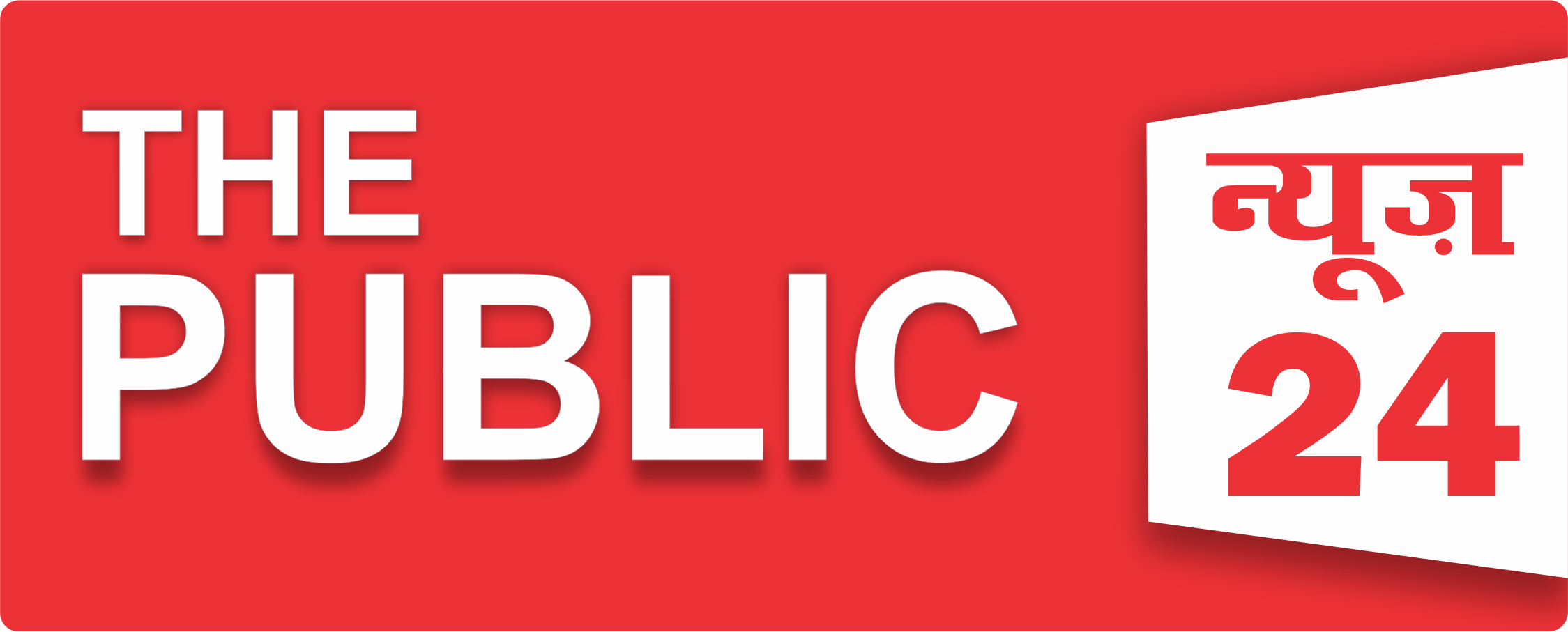भारत के पूर्व प्रधान मंत्री पंडित जवाहरलाल नेहरू |
पंडित जवाहरलाल नेहरू, एक दूरदर्शी व्यक्ति थे।

भारत के पूर्व प्रधान मंत्री पंडित जवाहरलाल नेहरू |
भारत के पहले और सबसे लंबे समय तक सेवा करने वाले प्रधान मंत्री, पंडित जवाहरलाल नेहरू, एक दूरदर्शी व्यक्ति थे।
अंग्रेजों से आजादी के लिए लंबे संघर्ष में भाग लेने के बाद, नेहरू, पंडित नेहरू को प्यार से बुलाते थे, जो उनके कश्मीरी पंडित समुदाय की जड़ों के लिए एक संदर्भ था, राष्ट्र निर्माण में एक दृढ़ विश्वास था, जैसा कि आप राष्ट्र के नागरिक थे।
भारत के पहले और सबसे लंबे समय तक सेवा करने वाले प्रधान मंत्री पंडित जवाहरलाल नेहरू एक दूरदर्शी व्यक्ति थे। अंग्रेजों से आजादी के लिए लंबे संघर्ष में भाग लेने के बाद, नेहरू, पंडित नेहरू को प्यार से कहते थे, जो उनके कश्मीरी पंडित समुदाय की जड़ों के संदर्भ में थे, राष्ट्र निर्माण में दृढ़ विश्वास रखते थे, क्योंकि वे समझते थे कि युवा भारतीय राष्ट्र का भाग्य के साथ एक प्रयास था।
एक विदेशी-शिक्षित बैरिस्टर और महात्मा गांधी के करीबी विश्वासपात्र, वह लोगों के राजकुमार बनने के जितने करीब आए, या कभी भी होंगे। वह महात्मा गांधी के चुने हुए राजनीतिक उत्तराधिकारी थे, और स्वतंत्र भारत के पहले निर्वाचित प्रधान मंत्री थे। 1950 में वल्लभभाई पटेल की मृत्यु के बाद, वह कांग्रेस में अपने सहयोगियों के बीच में थे। शैक्षिक संस्थानों, इस्पात संयंत्रों और बांधों द्वारा संचालित भारत के उनके दृष्टिकोण को व्यापक रूप से साझा किया गया था।
उन्हें एक बहादुर व्यक्ति के रूप में देखा जाता था, जो कट्टरपंथियों से लड़ते थे; एक निस्वार्थ व्यक्ति के रूप में, जिसने स्वतंत्रता प्राप्त करने के लिए वर्षों जेल में गुजारा था; और सबसे बढ़कर एक दूरदर्शी के रूप में। उनकी अपील ने निम्न जाति और उच्च जाति की पारंपरिक रूप से विरोध की श्रेणियों में कटौती की और निस्संदेह, जनता का प्रिय था।
नेहरू ने महसूस किया कि देश, रियासतों के एक ढीले परिसंघ से एक साथ जुड़ा हुआ है, कि दोनों अंग्रेजों के प्रति अपनी निष्ठा रखते हैं और साथ ही उनका विरोध करते हैं, अपनी क्षमता और ऊर्जा को एक राष्ट्रीयकृत चैनल में लाने के लिए कड़ी मेहनत करने की आवश्यकता है जो भारत के निर्माण में मदद करेगा। वास्तव में एक लोकतांत्रिक राष्ट्र जहां हर नागरिक मायने रखता है।
नेहरू की पहली प्रतिबद्धता भारत को एक आत्मनिर्भर अर्थव्यवस्था बनाना था। नतीजतन, उन्होंने आधुनिक शिक्षा और विशाल सार्वजनिक क्षेत्र के उद्योगों के मंदिरों की स्थापना की जो एक बढ़ते राष्ट्र और उसके लोगों की जरूरतों को पूरा करते थे। उच्च शिक्षा केंद्र स्थापित करने के उनके जोश से वैज्ञानिक सोच पैदा करने के उनके प्रयासों को देखा जा सकता है।
कई भारतीयों का मानना है कि भारत को एक जीवंत लोकतंत्र, एक औद्योगिक महाशक्ति, एक ज्ञान भागीदार, एक विश्व स्तर पर सम्मानित सैन्य शक्ति और एक प्रौद्योगिकी और अंतरिक्ष अन्वेषक होने का श्रेय नेहरू को जाना चाहिए; कि उन्होंने मजबूत नींव रखी थी जिस पर संस्थानों ने खुद को मजबूत और केंद्रित लक्ष्यों के साथ बनाया था।
नेहरू को बेहतर ढंग से समझने के लिए, उनके दूसरे पक्ष को देखने की जरूरत है, जहां वे बच्चों या 'भविष्य के नागरिकों' को प्रेरित करते हैं, जैसा कि उन्होंने उन्हें बुलाया था। बच्चों द्वारा चाचा (चाचा) नेहरू के रूप में स्वागत किया गया, 14 नवंबर को उनका जन्मदिन बाल दिवस के रूप में मनाया जाता है।
पीछे मुड़कर देखें, तो हम देख सकते हैं कि नेहरू एक ऐसे मोड़ पर थे जहाँ उन्होंने उन्हीं लोगों से लड़ाई की, जिन्होंने उन्हें शिक्षा के साथ सशक्त बनाया था। सही और गलत की उनकी सही समझ और पश्चिमी शिक्षा के बावजूद उनकी भारतीय परवरिश ने उन्हें स्वतंत्रता संग्राम में कांग्रेस पार्टी में शामिल होने और ऊपर उठने का मौका दिया। प्रधान मंत्री बनने के बाद, उन्होंने बिना किसी डर या पक्षपात के, दोनों महाशक्तियों, अमेरिका और सोवियत संघ से समान दूरी बनाए रखी, यहाँ तक कि उन्होंने पंचशील की नीति के आधार पर देश के लिए एक गुटनिरपेक्ष पाठ्यक्रम का चार्ट तैयार किया।
दिल से एक समाजवादी, उन्होंने चीन और भारत के बीच पंचशील समझौते पर हस्ताक्षर किए, जो इन दो संप्रभु राष्ट्रों के बीच संबंधों के पांच मार्गदर्शक सिद्धांतों के रूप में काम करना था। आश्चर्य की बात नहीं है, जब उन्होंने 'हिंदी-चीनी भाई-भाई' के बारे में बात करते हुए चीनियों ने भारत पर हमला किया तो उन्होंने विश्वासघात महसूस किया। एक कम तैयार भारतीय सेना ने चीनी सैनिकों की लहरों का मुकाबला किया, बहादुरी से लड़ाई लड़ी और भारी कीमत चुकाई।
भारत के लोकतंत्र के परेशान जन्म और बचपन के दौरान नेहरू का सावधानीपूर्वक पोषण। विद्वानों का मानना है कि आय के निम्न स्तरों पर लोकतंत्र की स्थापना नहीं की जा सकती है। इस प्रकार, भारत की लोकतांत्रिक दीर्घायु अद्वितीय है। यह शायद देश में एक लोकप्रिय उपनिवेश-विरोधी आंदोलन होने के कारण है। इससे भी महत्वपूर्ण बात यह है कि नेहरू, हालांकि सर्वशक्तिमान थे, लेकिन आजादी से पहले की वैधता को खत्म नहीं किया। दरअसल, उन्होंने इसे अंतिम जड़ तक मजबूत किया और समावेशी विकास का एजेंडा तय किया। नेहरू ने इसे समझा और अभ्यास किया।
सत्रह वर्षों के दौरान वे प्रधान मंत्री थे, नेहरू ने भारतीय राजनीतिक मंच पर एक महानायक की तरह कदम रखा। लेकिन उन्होंने कभी अपनी राजनीतिक इच्छाशक्ति नहीं थोपी और दूसरों को क्या कहना है, इस पर हमेशा ध्यान दिया। हालांकि भाषाई राज्यों के पक्ष में नहीं, उन्होंने लोकप्रिय इच्छाओं का पालन किया। उन्होंने मुख्यमंत्रियों का चयन नहीं किया, लेकिन राज्य स्तर पर पार्टी संगठन को अपने नेताओं का चुनाव करने की अनुमति दी। जब अदालतों ने उनके भूमि सुधार कार्यक्रमों को चुनौती दी, तो न्यायाधीशों की आलोचना करने के बजाय, उन्होंने संवैधानिक संशोधन करने का फैसला किया। एक उदार और सच्चे लोकतंत्रवादी, नेहरू एक स्वस्थ राजनीतिक बहस चाहते थे।
1952 में, स्वतंत्र भारत के पहले आम चुनावों के दौरान, लगभग 175 मिलियन लोगों ने मतदान किया। चूंकि तीन-चौथाई नागरिक निरक्षर थे, इसलिए उम्मीदवारों को साइकिल जैसे प्रतीक दिए गए |
Former Prime Minister of India Pandit Jawaharlal Nehru |
India's first and longest-serving Prime Minister, Pandit Jawaharlal Nehru, was a visionary.
After participating in the long struggle for independence from the British, Nehru, fondly called Pandit Nehru, a reference to his Kashmiri Pandit community roots, was a firm believer in nation building, as you are a citizen of the nation. Were.
Pandit Jawaharlal Nehru, India's first and longest serving Prime Minister, was a visionary. After participating in a long struggle for independence from the British, Nehru, fondly called Pandit Nehru, in reference to his Kashmiri Pandit community roots, was a firm believer in nation building, as he understood that young Indians The nation had a tryst with fate.
A foreign-educated barrister and a close confidant of Mahatma Gandhi, he came as close to becoming the prince of the people, or ever will be. He was the chosen political successor of Mahatma Gandhi, and the first elected Prime Minister of independent India. After the death of Vallabhbhai Patel in 1950, he was among his allies in the Congress. His vision of India driven by educational institutions, steel plants and dams was widely shared.
He was seen as a brave man who fought the radicals; As a selfless man who spent years in prison to gain freedom; And above all as a visionary. His appeal cut across the traditionally opposed categories of lower caste and upper caste and was, undoubtedly, the darling of the masses.
Nehru realized that the country, bound together by a loose confederation of princely states, that both pledged its allegiance to the British as well as opposed them, worked hard to channelize its potential and energy into a nationalized channel. Which will help in building India. Truly a democratic nation where every citizen counts.
Nehru's first commitment was to make India a self-reliant economy. As a result, they established temples of modern education and huge public sector industries that served the needs of a growing nation and its people. His efforts to inculcate scientific temper can be seen in his zeal to establish centers of higher education.
Many Indians believe that India should be credited with being a vibrant democracy, an industrial superpower, a knowledge partner, a globally respected military power and a technology and space explorer; That they had laid the strong foundation upon which institutions had built themselves with strong and focused goals.
To understand Nehru better, one needs to look at the other side of him, where he inspires children or 'future citizens', as he called them. Hailed as Chacha (Uncle) Nehru by the children, his birthday on 14 November is celebrated as Children's Day.
Looking back, we can see that Nehru was at a juncture where he fought with the same people who had empowered him with education. His right understanding of right and wrong and his Indian upbringing in spite of Western education allowed him to join the Congress party in the freedom struggle and rise up. After becoming prime minister, he maintained an equal distance from both the superpowers, the US and the Soviet Union, without fear or favour, even charting a non-aligned course for the country based on the policy of Panchsheel.
A socialist at heart, he signed the Panchsheel Agreement between China and India, which was to serve as the five guiding principles of the relationship between these two sovereign nations. Not surprisingly, he felt betrayed when the Chinese invaded India, talking about 'Hindi-Chini Bhai-Bhai'. An under-prepared Indian army fought waves of Chinese soldiers, fought valiantly and paid a heavy price.
Nehru's careful nurturing during the troubled birth and childhood of India's democracy. Scholars believe that democracy cannot be established at low levels of income. Thus, India's democratic longevity is unparalleled. This is probably due to there being a popular anti-colonial movement in the country. More importantly, Nehru, though omnipotent, did not extinguish the pre-independence legitimacy. In fact, he strengthened it to the very end and set the agenda for inclusive growth. Nehru understood it and practiced it.
During the seventeen years he was the Prime Minister, Nehru stepped into the Indian political stage like a superhero. But he never imposed his political will and always paid attention to what others had to say. Although not in favor of linguistic states, he complied with popular wishes. He did not select chief ministers, but allowed the party organization at the state level to elect its own leaders. When the courts challenged his land reform programmes, instead of criticizing the judges, he decided to make constitutional amendments. A liberal and a true democrat, Nehru wanted a healthy political debate.
In 1952, during the first general elections of independent India,

































